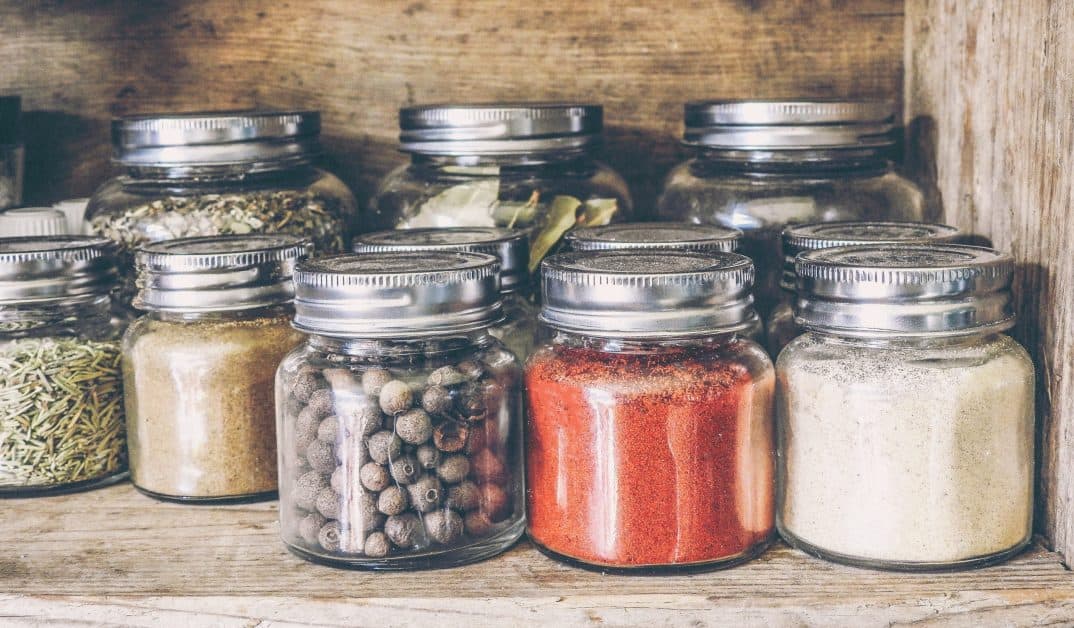-
Written by The Hormona Team

The world of natural remedies can seem a little overwhelming at times. With the countless claims about alleged miracle herbs and cure-all oils, it can be a challenge to separate the facts from the hype.
Don’t worry darling, we got you covered.
Here are seven quick-fix, scientifically-backed, tried-and-tested natural remedies to start you off on your journey to wellness goddess:
1. Rosemary Oil for a healthy Scalp
If you suffer from any kind of problem with your scalp – from dandruff to greasy roots – a rosemary oil scalp treatment may be just what you need. It can be used to treat dry and flaky or greasy. Rosemary essential oil strengthens circulation and also has anti-fungal and antibacterial properties to keep your roots healthy.
Give your scalp some love by mixing several drops of rosemary oil with olive or coconut oil. Massage this into your roots and leave it in for at least 10 minutes (or for the whole duration of your self-care day). Then wash it out with shampoo.
2. Propolis for a cold or flu
Despite all the advancements in modern medicine, there is still no cure for the common cold. However, there are some ways that you can help your immune system to fight them off faster.
Propolis is a powerful, sticky resin that bees create from tree sap. They mix it with their own enzymes to create a unique antibacterial, anti-fungal, and antimicrobial natural tonic. Designed to line the hive and provide a hygienic living environment, humans have made the most of this natural, edible disinfectant for thousands of years.
Try putting a few drops of liquid propolis in warm water or tea and drinking every few hours until you feel your cold or flu symptoms easing off. Beware – the taste is rather peculiar. I recommend adding it to a strong mint tea – or even mixing honey for both improved taste and additional impact – as this is the best way I’ve found so far to mask it!
3. Oregano Oil for an Infection
Oregano oil is packed with a range of nutrients such as Vitamins A, C, and E, as well as the minerals iron, magnesium, boron, manganese, zinc, and calcium. However, it is actually the compounds Thymol and Carvacrol that make oregano essential oil especially powerful.
Both Thymol and Carvacrol have powerful antiseptic and antifungal properties. Joint together in natural oregano oil, they work to stimulate the immune system, fighting bacteria, fungi, and parasites.
For respiratory infections, put a drop of oregano oil into steaming water. Cover your head with a towel and inhale the steam from the bowl. For staph infections – such as eye, skin or ear infections – or food poisoning caused by bacteria, add 3 to 7 drops to a cup of water or tea. Drink this with or after food several times throughout the day until the infection clears up.
Warning – oregano essential oil does not taste like pizza, and can give a temporary burning sensation. To avoid irritation, always dilute it before swallowing or applying it to the skin!
4. Activated Charcoal for Bloating
Activated charcoal capsules are a natural remedy to a bloated stomach after eating foods that are difficult to digest. Not the same stuff you use on a barbecue – activated food-grade charcoal is made from natural sources such as coconut shells, and is used medicinally for poisoning and overdoses. For personal use, it’s also very effective in reducing bloating and gas and even preventing or reducing hangovers.
The black magic works by absorbing excess gas and toxins (yes, including alcohol) from within your digestive tract.
Just bear in mind that this powerful gut-cleaner can also take some valuable nutrients with it. So don’t take too regularly straight after a meal!
5. Maca for Hormone Imbalance
As I mentioned in my article on hormone imbalance, this ancient Peruvian secret has been gaining popularity in the rest of the world for some time now.
As an adaptogen, when ingested, maca root adapts to your specific hormone levels. It encourages a natural increase or decrease in each hormone, depending on your profile. Maca has long been used as a natural remedy for improved fertility, hair, skin, and nails, as well as for treating PMS.
In its mild and sweet-tasting powder form it can be added to hot drinks, cereal or porridge – or simply taken as a capsule.
6. Peppermint oil for Stomach cramps
As also discussed in my review of old wives’ tales that actually work, peppermint essential oil is a tried-and-tested stomach relaxer. This is in part because it provokes the production of bile to facilitate the digestive process. But also, since the stomach and digestive tract are comprised of smooth muscles, they are susceptible to the gentle muscle-relaxing effects of the peppermint oil, calming any cramps and spasming. In fact, several studies have shown the effects of peppermint-based treatments as being useful in alleviating IBS symptoms.
You can make the most of this remedy either by drinking a classic peppermint leaf infusion – or, for a quick fix – taking a couple of drops or capsules of peppermint essential oil.
7. Ginger for Nausea
Ginger root gets its medicinal properties from gingerol, as well as compounds called shogaols, which give the root its pungent taste. Shogaols are more concentrated in dried ginger, while, gingerols are more abundant in fresh ginger. Ginger and its compounds can speed up stomach emptying, which may be why it’s so effective in reducing nausea – whether it is motion sickness, hangover-induced, or a stomach flu or infection.
The spice also has anti-inflammatory properties and may improve digestion and support the release of blood-pressure-regulating hormones to calm your body and reduce nausea.
There are many ways you can take ginger to ease your nausea – either nibbling on it fresh, mixing dried ginger with warm water and drinking, or prepared products such as ginger ale or ginger tea can also have the desired effect.
The bottom line
Humans have been using natural remedies since day one. But don’t be fooled – they aren’t just for “hippies” or anti-vaxxers who shun all modern medicine.
Rather, by developing a knowledge of some of the natural ingredients out there which can have a tangible impact on everyday, non-serious ailments (and usually with no side-effects) – you can save the pills and over-the-counter ointments for when they’re really necessary.
What’s your go-to natural remedy? Have you tried any of these? Let us know down in the comments!

-


Dr Singh is the Medical Director of the Indiana Sleep Center. His research and clinical practice focuses on the myriad of sleep.




